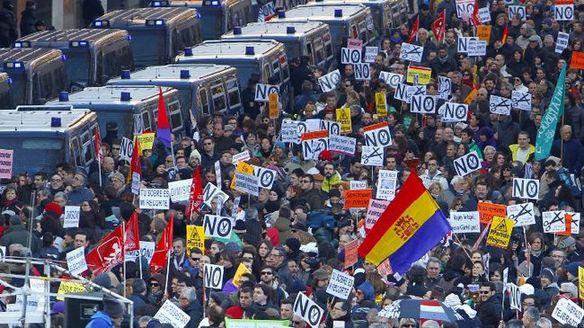Top 10 trends of 2014
 0 Comment(s)
0 Comment(s) Print
Print E-mail China.org.cn, December 26, 2013
E-mail China.org.cn, December 26, 2013
 |
6. Diminishing confidence in economic policies
People - and especially young people - have lost faith in economic policy. What lessons can we learn from the current crisis to rebuild confidence?
I think the reasons for this diminishing confidence are threefold: the reach and intensity of the crisis; the sluggish pace of recovery since then; and the unrealistic expectations that have been placed on economic policies.
To start with the first of those reasons, it's important to remember that few people saw this crisis coming. Folks in Asia saw their businesses dropping precipitously in the fourth quarter of 2008 and they had no idea who the Lehman Brothers were or what they did. And it's not just the man in the street who was caught by surprise; most experts had not foreseen the crisis because at the time the financial sector was seen as particularly innovative and prosperous.
It's hard to imagine now, but the rise to record levels of home ownership in the US and the growth of the sub-prime market were seen as signs of tremendous progress. That was flipped upside down virtually overnight, and suddenly these symbols of progress and opportunity became symbols of irresponsibility and threat.
That change was incredibly traumatic and it has been compounded by the sluggish pace of recovery since the crisis. People are uncertain about which policies are necessary to produce a return to stronger growth and that's been exacerbated by the tendency to ascribe wildly unrealistic powers of healing to public policy. I suspect that an excess of belief grew up in the short-term efficacy of policy, because it was felt that there were prophylactic tools available that should be able to ameliorate any problem. As such, the failure of the financial system became seen as reflecting the failure of the regulatory environment and the weakness of the recovery yet again suggested that policy makers were either feckless or powerless.
Younger people tend to be especially critical of today's economic policies – the Survey found that respondents under 50 think this issue is more significant than respondents over 50 and it's the 18–29-year-olds who ascribe it the greatest significance. It makes sense that the boomers out there might not be quite so concerned personally – they stand to benefit from some very favourable government-supplied pensions and they've certainly done better than previous generations in terms of public healthcare and other welfare measures. My guess is they don't really feel like those things are at risk, whereas many younger folks in places like the US will be wondering how long these systems will remain intact.
If we're going to turn this around and rebuild confidence, we need to heed the lessons highlighted by the current crisis, and the first of those is the degree to which the global economy is interconnected. The G20 leaders was the most enlightened response to the crisis and this mutual interdependence of the global economy, but its potential has been dramatically underestimated.
The G20 existed previously at the level of finance ministers, so somehow elevating it to heads of state didn't seem like such a big deal. But a regular meeting of the heads of government that represent two thirds of the world's population and 85% of its GDP has no historical precedent. The initial institutional response was extremely effective and yet it's been permitted to waste away. Co-operative efforts are the best way of dealing with interconnected problems and if we can keep that in mind and build on the early successes of the G20 leaders, I think we can make a difference.






Go to Forum >>0 Comment(s)